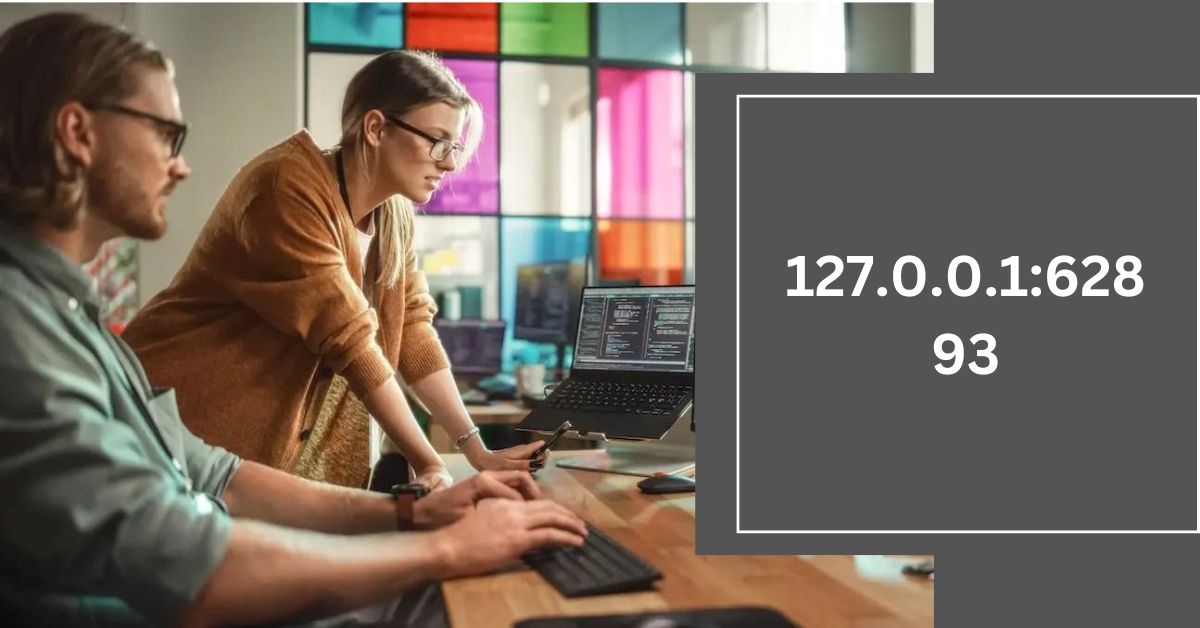127.0.0.1:62893 – More Secure Computer Experiences!
127.0.0.1:62893 might look complicated, but it’s actually a key part of how computers and networks work. By learning about it and fixing related issues. I hope sharing my experience helps others facing similar problems.
127.0.0.1:62893 is a code used by developers to test and debug their applications on their own computers. This article explains what the code means, why it’s useful, and how to fix common problems with it.
Understanding it can make your development work much easier and more efficient!
What Does 127.0.0.1:62893 Mean? – Let’s Know About It!
127.0.0.1, also known as the “loopback” or “localhost” address, is a special IP used by your computer to refer to itself.

It’s essential for testing and debugging applications locally, as it allows developers to simulate network communications without needing an internet connection.
This isolation ensures a safe environment where testing activities don’t interfere with live networks or other applications.
Universally recognized across all operating systems, 127.0.0.1:62893 is a vital tool for ensuring software functions correctly before deployment.
Why do I see the address 127.0.0.1:62893 in error messages?
When you see “127.0.0.1:62893” in error messages, it means there’s a problem with how programs on your computer talk to each other.
This often happens when they try to communicate within your computer, but something goes wrong. Usually, it’s because of issues like settings being wrong or one of the programs not working correctly.
These errors are common when you’re working on fixing or testing software, like when using tools to find and solve problems in computer code.
Fixing these errors involves checking settings and making sure everything is set up correctly so that the programs can communicate properly.
What is the error Disconnected from the target VM, address: 127.0.0.1:62893?
The error message “Disconnected from the target VM, address: 127.0.0.1:62893” means that the tool you’re using to troubleshoot software issues lost its connection with a virtual machine (VM) that’s running on your computer.
It’s like the tool and the VM stopped talking to each other suddenly. This usually happens because of problems like a bad internet connection or settings that aren’t quite right.
To get things working again, you’ll need to check if the VM is still running, make sure your computer’s internet is working okay, and take a look at the settings in the tool.
What Is Port 62893 Used For? – Enhance Your Computer Experience!

- Specific Application Usage: Port 62893 is not associated with a specific standard application or service by default. It’s often chosen by custom applications and development tools for communication purposes.
- Memcached: In some cases, port 62893 might be used by Memcached, a distributed memory object caching system. Memcached uses ports to allow client applications to connect and store or retrieve data.
- Firewall and Security: Ports like 62893 can be configured in firewalls to allow or block traffic for specific applications. Ensuring that only trusted applications can use this port helps maintain security, especially when testing new software.
- Custom Network Services: Custom network services or applications developed in-house might use port 62893 for specific functions. These services can include custom APIs, internal tools, or monitoring systems that need a unique port to operate.
- Local Testing and Debugging: Developers often use such ports for local testing and debugging to ensure that applications can communicate correctly without affecting other services or requiring an internet connection.
How Is It Safe To Expose Port 62893 To The Public Internet?
Opening port 62893 to the public internet is risky and not recommended. It’s akin to leaving a window open in your house—it invites potential intruders.
By allowing access to this port from the internet, you’re essentially providing a gateway for cyber attackers to attempt unauthorised entry into your system.
This can lead to serious consequences, such as compromising sensitive data or disrupting your system’s normal functioning.
To safeguard your computer and data, it’s crucial to keep port 62893 closed to external access and implement robust security measures to prevent unauthorised intrusions.
What is localhost used for in development? – make your coding life easier!
Localhost is like a secret playground for developers inside their own computers. It’s where they test and fix their programs before sharing them with the world. Here, they can try out different ideas without causing any trouble to other people’s computers.
Plus, it’s a great place to learn new things without worrying about making mistakes that affect real websites or apps. In short, localhost is like a safe sandbox where developers can play, learn, and create without any worries
Must Read: Kecveto – The Ultimate Superfood For Boosting Energy And Vitality!
Why might a firewall block localhost connections? – ensure your computer stays secure!
Firewalls, like security guards for your computer, often have strict rules about what can and can’t go in and out. Sometimes, they accidentally block connections to localhost, your own computer.

This can happen if the firewall is set to be too cautious. Other times, it’s because of specific security policies or to stop sneaky software from causing problems.
It’s like having a door shut when you’re just trying to move from one room to another in your own house! But don’t worry, you can usually get things back to normal and keep those connections flowing smoothly.
What tools can help troubleshoot network issues related to 127.0.0.1:62893?
Wireshark:
- It’s like a detective for your internet traffic. Wireshark lets you see all the data going in and out of your computer, including connections to 127.0.0.1:62893.
- It helps find any problems with how your computer is talking to itself.
Telnet:
- Think of it as a phone call to your computer.
- You can use Telnet to check if your computer is listening for connections on port 62893.
- If the call goes through, everything’s fine. If not, there might be a problem.
Task Manager (Windows) / Activity Monitor (macOS):
- These are like doctors for your computer.
- They can tell you if any programs are using too much of your network, which might be causing issues with connections to 127.0.0.1:62893.
Firewall Settings:
- Your computer’s firewall is like a security guard. Sometimes it might be blocking connections to 127.0.0.1:62893.
- Check your firewall settings to make sure it’s allowing these connections.
Diagnostic Commands:
- These are like magic spells you can cast in your computer’s command prompt.
- Commands like ping, traceroute, or nslookup can help you figure out if there are any problems with your network.
Also Read: Cac40 Fintechzoom – Your Financial Future!
FAQs:
Why would I want to change the port number from 62893?
Changing the port number of your application might affect how well it works, but it depends on a few things. If you pick a port number that’s already busy with other stuff, like other apps or services, it could slow things down because they’re all competing for space.
Will changing the port number require modifications to my application’s code?
Changing the port number of your application typically doesn’t need any coding changes. Most apps are set up to let you tweak the port without touching the code. You can usually do this through simple settings or commands.
How do I ensure my Memcached server on port 62893 is secure?
Securing your Memcached server on port 62893 is all about keeping it safe from potential risks. Here’s how to do it in simpler terms: First, set up passwords or access rules to control who can use it.
Conclusion:
To put it simply, “127.0.0.1:62893” might seem tricky, but it’s actually a big deal for computer folks. Think of “127.0.0.1” as your computer’s special nickname, and “62893” as a unique room number for a specific job.
Read More:







